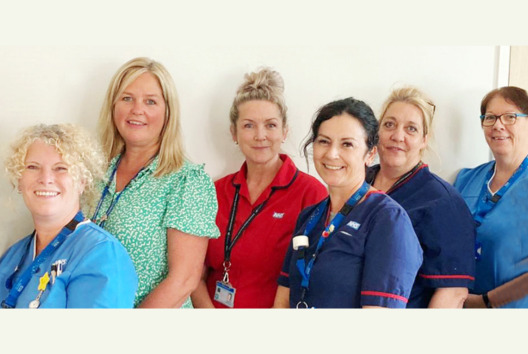
Spotlight
Finding the forgotten in Somerset – how we are caring for the homeless
In Somerset, there are hundreds of people affected by homelessness or rough sleeping. While this number is relatively small in comparison to other groups of patients, they are some of our most vulnerable in our county, with complex and vast health needs.
People who are homeless or sleeping rough face huge barriers to accessing healthcare, and as such, can potentially only live until their mid-40s – around 30 years younger than the general population. Drug and alcohol disorders are common amongst the homeless population, and they are also more likely to struggle with their mental health. In fact, homeless people are more than nine times more likely to complete suicide.
Supporting homeless people to access healthcare when they need it can make all the difference to their lives – so it’s important that we get it right, to give them the care that they so desperately need, yet struggle to access.
Our homeless and rough sleepers service is a community-based, intensive outreach service, which has been supporting people across Somerset who are homeless or sleeping rough for the past two years. It provides a range of healthcare services, from general health assessments, wound care and dressings, to help with medical appointments, sexual health testing, mental health first aid, and much, much more.
Like many of our services, the team works closely with several partners across the Somerset health and care system, the police service, as well as charities – and now that our merger has created one, large NHS trust for Somerset, the hope is that there will be no wrong door when it comes to accessing services for this group of people.
Clinical lead for the homeless and rough sleepers service, Karen George, has grown the team to 14-strong since she started her role at the beginning of 2022. She shares how, together, Somerset is finding the forgotten.
“Whether it’s a park bench in Taunton, a field in Wincanton, or one of the hostels in Yeovil, we will deliver care to those who need it, wherever we can,” explains Karen. “There are hundreds of people in Somerset who are in difficult situations, and it’s important to remember that it’s not just people living on the streets that struggle. There are people living in hostels or sofa surfing, gypsies, travellers, and those who have just been released from prison – these people usually don’t have a permanent home.
“When someone doesn’t have a fixed address, the barriers they face to accessing healthcare can be impossible to navigate. This often means they end up coming through ‘the front door’ at an emergency department (ED), when they don’t need to be there, or sadly, simply not accessing healthcare at all.
“Our goal as a team is to join up the gaps, by working closely together with our partners across Somerset. We link in with our colleagues at Avon and Somerset Police, with charities such as the Somerset Drug and Alcohol Service (SDAS), and with other healthcare services such as the South Western Ambulance Service (SWAST). Now that we are one, merged trust, we also want to create a ‘no wrong door’ approach within our own organisation.”
The homeless and rough sleepers service link closely with both EDs at Musgrove Park and Yeovil Hospital, and discharge teams from across the trust – supporting any patients who don’t have a fixed address, once they leave hospital, to continue getting the care they need out in the community.
Due to the nature of their situation, people who are homeless or sleeping rough are also likely to struggle with alcohol and drug addictions, as a way of coping. This is where teams such as the substance misuse team at Yeovil Hospital, and the alcohol practitioners at Musgrove Park, play a huge part in offering this joined-up care.
“Being able to share patient information, and work together with teams from across the trust, will be a huge step forward in ensuring we can deliver care to all our patients – breaking down the barriers of inequality that we unfortunately still see,” Karen continues. “My own personal background working in ED, for the police, and in the substance misuse team at YDH, before becoming clinical lead for the homeless and rough sleepers service, means that I understand how we can all help and support each other to benefit the people we care for.”
The safeguarding service and mental health services in Somerset are also key partners helping to care for people who are homeless or sleeping rough. Karen has introduced new mental health practitioners and peer support workers to the team, providing a bridge to these services and making it easier for patients to access support.
“We are essentially creating a one-stop-shop for people with no fixed abode, enabling them to access various mental and physical health care, without the need to attend a hospital or GP. Little things can make a huge difference to the lives of these people – and that’s why we do what we do.
“The perception of people who are homeless is often fairly negative. Many assume that these people got themselves into this situation, and aren’t helping themselves to get out of it. It’s simply not the case. Some of the stories we hear are truly heartbreaking, and you can fully understand why they are living as they are. But at the end of the day, they are people, and people have healthcare needs. We are building a joined-up service in Somerset that is showing them that they haven’t been forgotten, and that they can get the care and support they need, just like anyone else.”

